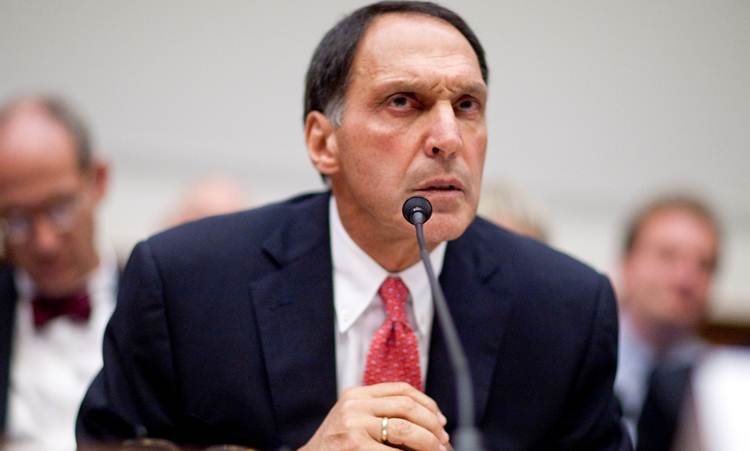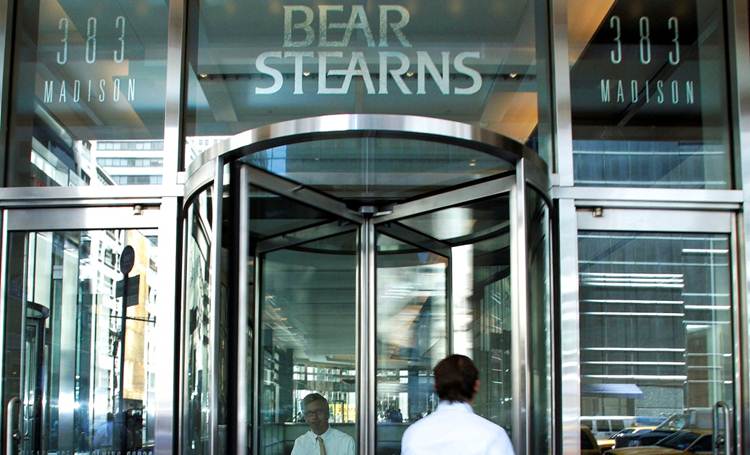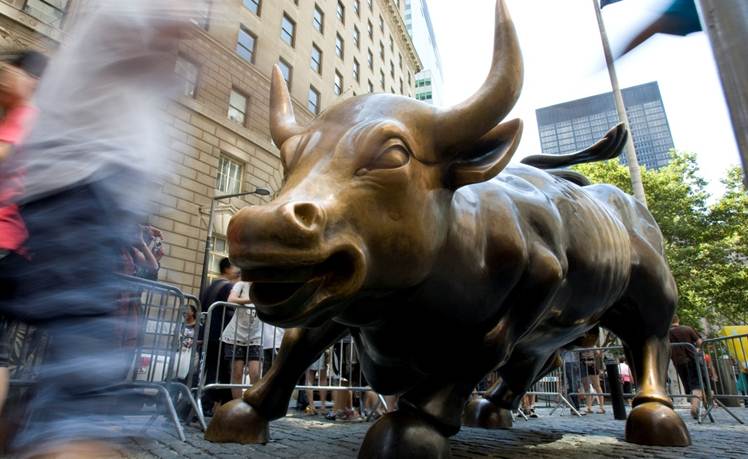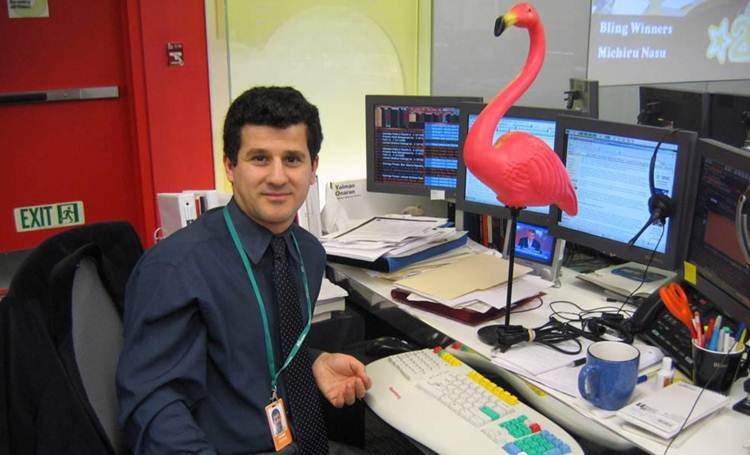
Scene One: I meet an interesting Turkish-American professional at my college alumni reception and we chat about my foundation's interest in opening a Turkish Fund for women and children's social issues in Turkey. He volunteers to advise me -- great! Scene Two: I notice an intelligent New Yorker on the subway reading a book, which always catches my attention. I note the title: Zombie Banks. Odd, I think. Scene Three: I meet the man, a writer for Bloomberg News, for drinks at 8:30 to discuss Turkey and he presents me with his new book just published last month: Zombie Banks.
I know of banks that are about to collapse, having begun my career in New York as an assistant Euro-bond portfolio manager for Daiwa Bank of Osaka. This bank disappeared in 1995, a decade after I left, following its loss of $1.1 billion from speculation in the bond market.
Yalman Onaran knows of putrid financial institutions as well, having written about them in his native Turkey so successfully he brought down a few in Istanbul in the late '90's, leading to his career with Bloomberg and his move to New York where he covered the even larger collapse of Lehman Brothers and Bear Stearns. In fact, it is Bloomberg that has published Zombie Banks.
 Lehman Brothers C.E.O. Dick Fuld testifying to Congress. Photo: Bloomberg.
Lehman Brothers C.E.O. Dick Fuld testifying to Congress. Photo: Bloomberg.
I spoke to Yalman about his insightful Zombie Banks. Everyone is afraid that the world economy is about to go into a second recession, I asked him. Why are we heading in that direction? He told me:
That's because we haven't fixed the problems that had caused the one in 2008. Leaders in the U.S. and Europe patched up the troubled spots, printed lots of money and avoided the underlying issues. Especially the banking system, which blew up to bring the world economy down a few years ago, is still fragile, too wounded to support a recovery and filled with even more risk. That's why I call the banks zombies. They will make the next blowup more spectacular.
This raised further questions: Why are the shares of European banks falling so much? What are investors worried about?
French and German banks are more exposed to the troubled economies of the region than others. During the boom times -- when Irish housing prices quadrupled, Greek civil servants were allowed to retire at the age 53 -- French and German banks fueled the boom in those countries. Now that the bubble has burst, those same banks face huge losses. There's too much debt in Greece, Ireland, Portugal, Italy and Spain. When the debt isn't paid -- and most of it can't be -- then lots of European banks will go bust.
 The giant Bear Stearns is one of the collapsed banks Yalman used to write about before penning his book on Zombie Banks. Photo: Bloomberg.
The giant Bear Stearns is one of the collapsed banks Yalman used to write about before penning his book on Zombie Banks. Photo: Bloomberg.
What about the stress tests? The Europeans have carried out three of those in the last three years? Why haven't those helped?
The first three tests failed miserably because their assumptions were too optimistic. For example, the banks' holdings of Greek government bonds were discounted by 20 percent. But Greek debt was already trading at 40 percent of their face value. Finally, in October 2011, the E.U. took a step toward a more realistic test, assuming bigger losses on sovereign debt holdings and asking the region's banks to raise some €20 billion in the next nine months. But once again, the figure is too small and zombies are being propped up -- governments will inject capital if banks cannot raise it in markets -- instead of being wound down.
U.S. bank stocks have also taken a beating in the second half of 2011. Are they also exposed to Greece or other E.U. countries?
Our banks didn't lend to Greece, Ireland or Portugal that much but they have other exposures to them -- derivatives backing their debt, loan guarantees, etc. So U.S. banks could suffer substantial losses in case of a string of E.U. defaults. On top of that is the added concern that the U.S. economy is sliding back into recession. We have our share of zombie banks who've managed to stay alive with temporary patches. They're too weak to survive a second downturn.
 Has the Wall Street bull been tarnished by zombie banking? Photo: Bloomberg.
Has the Wall Street bull been tarnished by zombie banking? Photo: Bloomberg.
Why are Bank of America shares dropping more than its peers?
BofA has the largest portfolio of mortgages which are souring and faces the biggest lawsuits due to home loans packaged into tricky securities that blew up in 2008. It needs more capital to cope with mounting losses, but its leadership has been refusing to raise any serious amounts. Market forces push zombie banks into a corner that's very hard to come out of. The longer BofA waits, the lower its share prices get, making a capital increase more costly and less effective.
More questions: What's the solution? What do we need to do? How do we avert another crisis?
Both Europe and U.S. need serious debt restructuring. Here mortgages need to be written down to diminished house values, in Europe sovereign bonds to levels that will allow countries to resume growth. The write-offs will cause losses on banks' books in both sides of the Atlantic. Unlike 2008, we should let the weakest fall this time, shut them down, sell off their good assets and let the surviving healthy banks pick up their market share. That way the financial sector can resume supporting economy recovery and consumers, companies return to consumption and investment.
My new friend Yalman intrigues me for another reason: he is the only single man I know attempting to father a child through surrogacy. He certainly breaks a lot of stereotypes about Muslim men in America. He is a most intriguing and eligible bachelor for the right man.
 Yalman Onaran, author of the newly-released Zombie Banks, is a senior writer at Bloomberg. Photo: Yalman Onaran.
Yalman Onaran, author of the newly-released Zombie Banks, is a senior writer at Bloomberg. Photo: Yalman Onaran.
Yalman feels strongly that the world is one, that borders and races and religions have become increasingly irrelevant in this modern age. What distinguishes humanity at this age of our evolution is not race or creed, but honesty and integrity. He fervently hopes that our global financial institutions as well as the government that support them push to become increasingly honest and trustworthy. He stands ready to expose them if they don't -- making the world a better place.
Purchase Zombie Banks here.
See Stories by Jim Luce on:
Corporate America & CSR | Gay & Lesbian Issues | Islam and Islamic Issues | Media | New York | Social Responsibility | Turkey and Turkish-Americans
The James Jay Dudley Luce Foundation (www.lucefoundation.org) is the umbrella organization under which The International University Center Haiti (Uni Haiti) and Orphans International Worldwide (OIWW) are organized. If supporting young global leadership is important to you, subscribe to J. Luce Foundation updates here.

